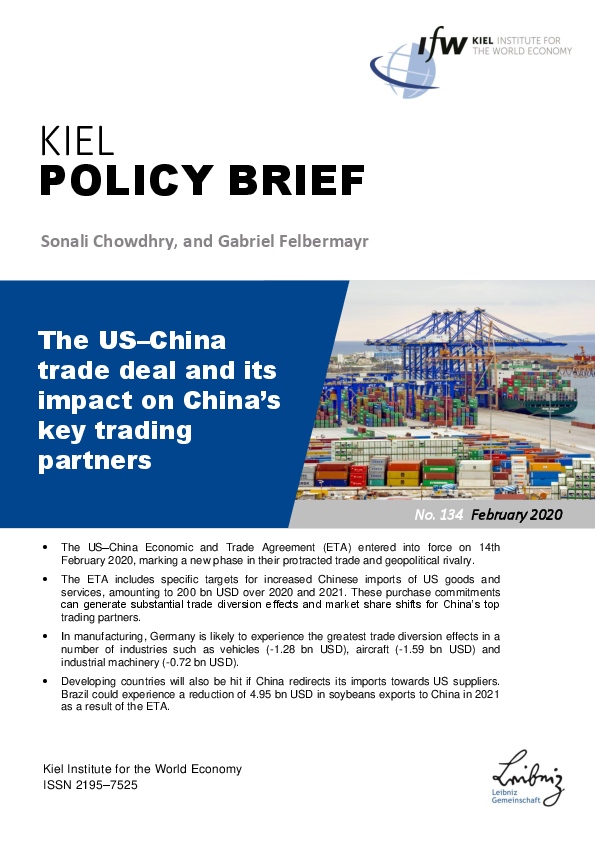Policy Article
The US–China trade deal and its impact on China’s key trading partners
Authors
Publication Date
Key Words
Related Topics
International Trade
USA
Europe
China
The US–China Economic and Trade Agreement (ETA) entered into force on 14th February 2020, marking a new phase in their protracted trade and geopolitical rivalry. The ETA includes specific targets for increased Chinese imports of US goods and services, amounting to 200 bn USD over 2020 and 2021. The authors show that these purchase commitments can generate substantial trade diversion effects and market share shifts for China’s top trading partners. In manufacturing, Germany is likely to experience the greatest trade diversion effects in a number of industries such as vehicles (-1.28 bn USD), aircraft (-1.59 bn USD) and industrial machinery (-0.72 bn USD). Moreover, developing countries will be hit if China re-directs its imports towards US suppliers. E.g. Brazil could experience a reduction of 4.95 bn USD in soybeans exports to China in 2021 as a result of the ETA.








